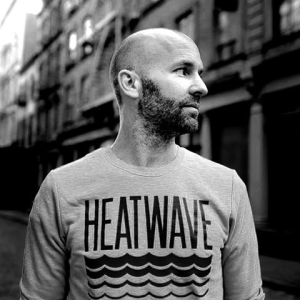Startup Studios are becoming more and more prevalent, with big name companies like Giphy and Girlboss coming from the studio model. The premise is strong: use venture on a small, concentrated number of ideas, fostered by experts and internal resources, to create strong businesses.
But a new startup studio is prepping to launch in NYC with a different idea in mind.
FCTRY, led by Jules Ehrhardt, doesn’t necessarily think that money is always the best way to help startups grow. Ehrhardt thinks of FCTRY as more of a Creative Capital Studio, wherein experts from various fields (with a particular focus on creative, design, and engineering) offer their insight and knowledge to help startups grow rather than venture capital. Of course, these startups would still trade equity in exchange for these services.
Ehrhardt comes from UsTwo, the digital product studio that helped develop the wildly popular game Monument Valley.
The focus of FCTRY won’t be the foundry model, where studios come up with their own ideas in conjunction with smart serial entrepreneurs and build them from scratch in house. Rather, FCTRY will help existing early-stage and mid-stage companies with their creative strategy, processes and culture.
“The typical advisory system is broken,” said Ehrhardt. “Usually the advisory structure comes from a one to five percent equity pool and usually ends up in disappointment, where the advisor was supposed to make introductions or provide actionable insight that never comes through.”
Ehrhardt says he wants to bring more charity to that, tapping into the same pool of expert advisors but with the proper structure in place for offering that expertise and delivering on the task.
FCTRY will focus on three pillars of startup success: product, people, and growth.
“Product” might sound a bit obvious and nebulous all at once, but FCTRY is particularly concerned with building a framework for delivering on product, helping set up the processes and organizational structure that allow companies to build great products. Of course, the FCTRY team will also be contributing directly to the products themselves, but with the added goal of ensuring that the startup can continue to iterate and build great brands and products beyond their time with FCTRY.
 Ehrhardt also noticed that recruitment and personal development are two big obstacles for companies trying to develop and express their own culture. Founders suddenly go from being chief product officer to hiring people to take over various roles at the company, requiring a totally different set of skills.
Ehrhardt also noticed that recruitment and personal development are two big obstacles for companies trying to develop and express their own culture. Founders suddenly go from being chief product officer to hiring people to take over various roles at the company, requiring a totally different set of skills.
FCTRY wants to help startups develop and express their mission and culture so that it can scale from 10 people to 200 without a lot of friction. FCTRY also wants founders to focus on their own personal development, and that of their employees. Ehrhardt noted that Travis Kalanick, founder and CEO of one of the fastest scaling companies on the planet, didn’t scale himself up alongside the company.
“Failures often come down to the human part of a company,” said Ehrhardt. “People haven’t been aware of the need for their own personal development.”
As part of that, FCTRY will not only help with recruitment and hiring but with feedback frameworks within companies.
The last part of the puzzle for FCTRY is growth. The company will help with paid, viral and sticky marketing strategies drawing from a pool of talent in the creative agency space. Ehrhardt says that around 20 percent of the FCTRY team will come from creative agencies, with the rest coming from other fields of expertise, such as machine learning, design, engineering, etc.
Ehrhardt stressed that one of the greatest opportunities with the Creative Capital model is offering a new path to wealth creation for some of the leading experts in their respective fields. These experts, though they may not be able to write a big check to a VC firm or even as an angel to a startup, can exchange their own insight for equity through the Creative Capital model.
“Traditionally, LPs are people who can cut a check, who tend to be white men who have benefitted from their privelege,” said Ehrhardt. “We can do a lot to open up the chance for wealth creation to far more people than the usual suspects.”
While FCTRY is in its early days, Ehrhardt envisions gathering around 20 people to join the FCTRY team, with plans to work with around 10 startups over the course of a year, with engagements varying in size and duration.
from Startups – TechCrunch https://ift.tt/2IoA3cy
via IFTTT
No comments:
Post a Comment
Thank You for your Participation